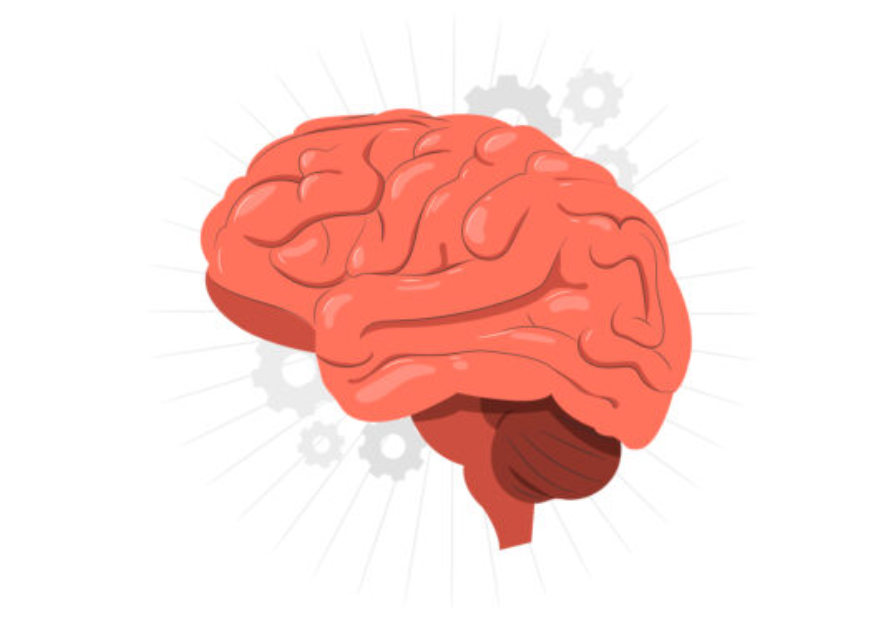
Recent Posts
Please feel free to share this with anyone who needs it
Is your brain always your friend? Is it always your enemy? Regardless, she/he/it is up there (unless you have a brain transplant planned). It might be a good idea to learn about him/her/it and learn ways to deal with your brain.
Does it feel sometimes like your brain is up between your ears talking loud? Does he/she/it sometimes have some negative things to say about the world, other people, and most importantly, about you? Do you struggle with these thoughts? When you struggle with these thoughts, do they get smaller, or bigger? Stronger or weaker (see the handout “struggling versus letting go”)? When you struggle with these thoughts, is there something you can do, to have more peace and less pain in your life?
First you need to consider getting some distance from your brain and these negative thoughts. Do they carry you toward peace or pain? If the answer is pain, getting some distance is a good idea. One of the best ways of getting some distance from your brain and these thoughts, and reducing their control over your life, is to name your brain. This helps you separate your thoughts/brain from the “real you”. After all, aren’t you having conversations between your ears now? Stop and check out what you are thinking. Why not give your brain a name, if you are already talking to him/her/it?
Remember that you are not your brain. Although your brain changes over time (adds new memories, knowledge, new beliefs etc.) there is also a part of you that does not change. For example, although your brain may be telling you that you are a bad daughter/brother, mother/father, husband/wife, there is also a part of you that has always believed that with the right tools, you can become something different. That belief has been the same at 5 years old, 10 years old, 15, 20…it does not change. Even today as you sit in therapy, you still feel like you can get better in this area despite what your brain, other people, or the world may have told you.
So name your brain and begin to notice him/her/it by the name you have picked. Now when your brain has a mentally suffering thought, you can thank her/him/it by name and decide if you want to struggle with her/him, or let the thought go. Like you would if you were having a conversation with someone you knew – you could take their advice or not. See your thoughts as information – not something that is you, or something you have to act on.
Does it feel sometimes like your brain is up between your ears talking loud? Does he/she/it sometimes have some negative things to say about the world, other people, and most importantly, about you? Do you struggle with these thoughts? When you struggle with these thoughts, do they get smaller, or bigger? Stronger or weaker (see the handout “struggling versus letting go”)? When you struggle with these thoughts, is there something you can do, to have more peace and less pain in your life?
First you need to consider getting some distance from your brain and these negative thoughts. Do they carry you toward peace or pain? If the answer is pain, getting some distance is a good idea. One of the best ways of getting some distance from your brain and these thoughts, and reducing their control over your life, is to name your brain. This helps you separate your thoughts/brain from the “real you”. After all, aren’t you having conversations between your ears now? Stop and check out what you are thinking. Why not give your brain a name, if you are already talking to him/her/it?
Remember that you are not your brain. Although your brain changes over time (adds new memories, knowledge, new beliefs etc.) there is also a part of you that does not change. For example, although your brain may be telling you that you are a bad daughter/brother, mother/father, husband/wife, there is also a part of you that has always believed that with the right tools, you can become something different. That belief has been the same at 5 years old, 10 years old, 15, 20…it does not change. Even today as you sit in therapy, you still feel like you can get better in this area despite what your brain, other people, or the world may have told you.
So name your brain and begin to notice him/her/it by the name you have picked. Now when your brain has a mentally suffering thought, you can thank her/him/it by name and decide if you want to struggle with her/him, or let the thought go. Like you would if you were having a conversation with someone you knew – you could take their advice or not. See your thoughts as information – not something that is you, or something you have to act on.




